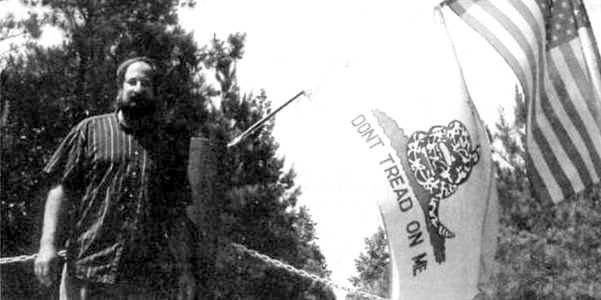| By ERIK ROOT
Assistant Editor Homeowners associations are on the rise in the United States as well as in North Carolina. However, what was once sold as an avenue for local control and the protection of property rights has turned into another means to deny homeowners full enjoyment of their property. The News & Observer of Raleigh reported recently of one couple who is moving out of Cary because the association in their neighborhood constantly harasses them about their dogs, which are considered a "nuisance." And it gets worse.
Shu Bartholomew dedicates one hour every week on a local Virginia radio station discussing the far-reaching power of homeowner associations. On her show, "On the Commons," Bartholomew interviews people who have had their homes taken by associations for frivolous reasons. It's evident that homeowner associations have become just another avenue for nosy people to assert their will over their neighbors in their community.
Happ gets the shaft Such is the case for a mild-mannered man named Rick Happ, who bought a large piece of land secluded at the end of a dirt road in Pamlico County. What he thought was a 200-acre paradise turned out to be a nightmare. The ordeal has halted construction of his home, which is about $10,000 from completion. Even if he can find the money to finish his home, however, he still may lose it. Members of the local homeowners association have decided they do not like Happ and they have overwhelmed him with litigation that he is forced to combat. If he loses the case, he will be responsible for thousands of dollars in attorney's fees on behalf of the association and have to pay unspecified "damages." Happ bought his property from Weyerhaeuser in 1994 through the Weyerhaeuser Real Estate Company. The property is not located in an area where people usually think homeowners associations exist. It is nestled at the end of a long dirt road and is the last lot in the area. The land abuts the Neuse River. The property is rural - there are no paved streets, no city or county sewer, no landscaped yards, and the area is heavily forested. According to Weyerhaeuser Real Estate Company publications, "The purpose of the Creek Pointe Homeowners Association is to provide a means by which the actual property owners participate in the development of the community." While this sounds good, the association has selectively applied the term "participation." Some members are allowed to participate, and others are not. Happ, for example, has been denied the minutes of the association's meetings and members of the association have discouraged his participation. The controversy began when Happ installed a gate, actually a chain across his road, to his property. It appears that members of the association wanted unlimited access to Happ's property. According to the lawsuit filed by Happ's hostile neighbors, they maintain "all of the Creek Pointe Homeowner's are entitled to the use of the road." In other words, they wanted to be able to walk on Happ's property at any time, and walk anywhere. However, according to the contract Happ signed with the real estate company, he could "at his option, place a locked gate or other device or method to entirely close the road into his property to all traffic beginning at the lot line." Other maps of the property designate the road as "private." Unconstitutional authority?
According to many who have followed the history of homeowners associations, the minute regulation of everything on one's property is beyond the scope of the original intention of such associations. There are numerous examples of non-adjudicated foreclosures on homes. This fate could await Happ even though the Creek Pointe Homeowners Association approved Happ's gate on April 29, 1994. Karl D. Blackley, of the Creek Point Architectural Committee, wrote Happ stating such approval. However, apparently the association changed its mind. The letter approving Happ's gate appeared on Weyerhaeuser Real Estate letterhead. Blackley is no longer a member of the Creek Pointe HOA, nor is he employed at the real estate company, but it is clear that he and the association believed Happ had the freedom to install the gate. Calls to current Creek Pointe board member Robert Hollatschek (who also works at Weyerhaeuser) went unreturned. "Wakeup call' in North Carolina
|



